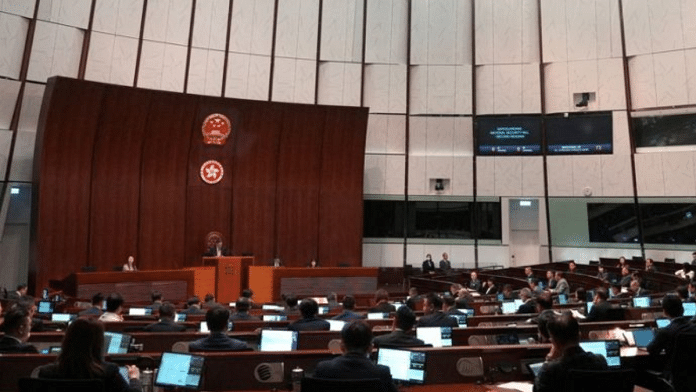New Delhi: Lawmakers in Hong Kong Tuesday unanimously passed a new domestic security law that seeks to align the island with the Chinese national security law on crimes such as treason, and external meddling.
The fast-tracked law contains 39 offences divided into five different categories, including treason, insurrection, acts with seditious intention, sabotage and external interference.
Speaking to the media, Chief Executive of Hong Kong John Lee said the law was a “strong door and lock” to protect the region from invaders, as reported by the South China Morning Post. “(The Legislation) is needed to guard against people who invade our home… We need to have such tools which are effective in guarding against black violence and colour revolution… We no longer need to worry about people destroying public infrastructure with the new law,” Lee is quoted as saying.
Lee pointed out that Hong Kong had taken 26 years to implement the new security law in comparison with countries like the US which took 21 days to implement the Patriot Act. The first attempt made to introduce a national security law in 2003 faced massive opposition and was eventually dropped.
Known in Hong Kong as Article 23 (the new law), it complements the National Security Law imposed by Beijing in 2020 following massive demonstrations that broke out in Hong Kong in June 2019 against the government’s attempt to modify their extradition law.
During an appearance in the Legislative Council earlier in the day, Lee said he would sign the law and that it would come into effect from 23 March.
The law establishes penalties, including life imprisonment for four offences: insurrection, treason, inciting members of the Chinese military to mutiny and colluding with external forces to damage public infrastructure.
Conspiring with external forces to damage public infrastructure can also be applied to individuals living outside of Hong Kong, the South China Morning Post reports.
Other penalties include up to twenty years imprisonment for espionage and endangering national security in relation to computers or electronic systems.
Individuals who publicly manifest an intention to commit treason or fail to disclose the commission of treason by others face up to fourteen years imprisonment, under this law.
The legislation also allows the Chief Executive to make new laws with punishments of up to seven years, without any requirement for the same to be passed by the legislature of Hong Kong, reported The New York Times.
In 1997, Hong Kong was handed over to the Chinese government by the British. Between 1841 and 1997, Hong Kong had remained a colony of the UK. In 1898, the UK was granted another 99 years to govern the colony.
In 1984, the British government signed an agreement with China to return the colony in 1997, under the idea of a “one country, two systems” policy, which would allow Hong Kong to retain certain elements of its capitalist system.
(Edited by Tikli Basu)
Also read: ‘No cost too high for China’ — how Beijing is seeking to undermine Taiwanese diplomacy



